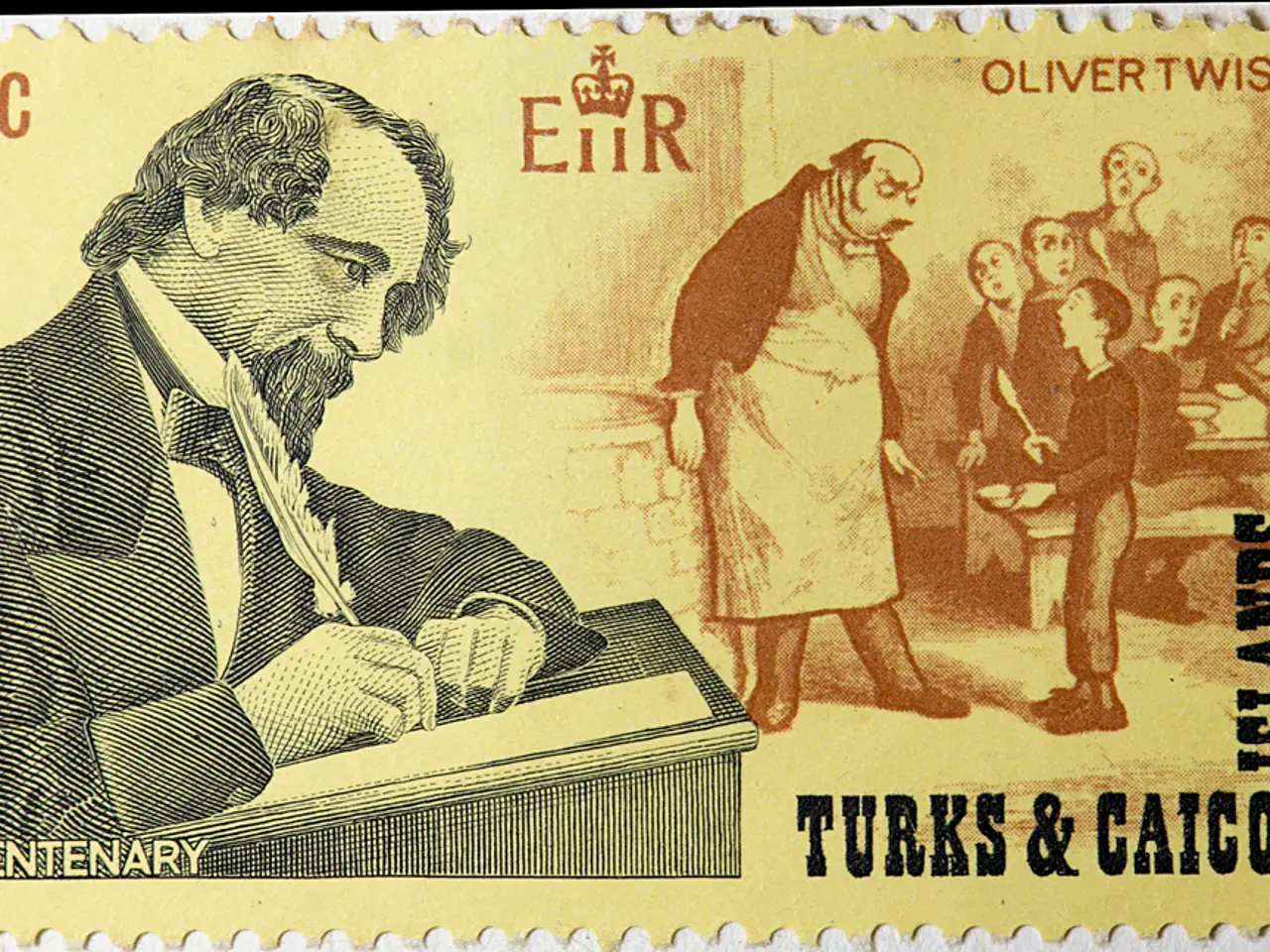Enhancing brain decline during aging may be facilitated through the utilization of food stamps, according to a recent study.
In a significant discovery, a 10-year study has shown that participation in the Supplemental Nutrition Assistance Program (SNAP) can slow cognitive decline in older adults[1][3][4]. The research, conducted by the University of Georgia, tracked 1,100 people 50 and older who were enrolled in SNAP in 2010 and 1,200 older adults who were eligible for SNAP but did not participate[1].
The study found that over a 10-year period, SNAP participants experienced around 0.10% slower decline in overall cognitive function compared to their eligible non-participating peers[3]. This effect could translate to approximately two to three additional years of better cognitive health[3].
The study highlights the importance of addressing food insecurity, which has been shown to negatively impact cognitive function[1][2]. By reducing food insecurity, SNAP supports nutrition, benefiting brain and overall health[5].
However, many eligible older adults from diverse backgrounds face obstacles such as stigma, complex applications, and lack of awareness that affect their SNAP participation rates[5]. These barriers could impact the program's ability to reduce disparities in cognitive outcomes.
Regarding racial and ethnic disparities, the study emphasized the need to reduce disparities in cognitive aging across racial and ethnic groups[1]. The findings showed that white SNAP recipients exhibited a slower cognitive decline compared to black and Hispanic participants[1].
The study results were presented at the Alzheimer's Association International Conference in Toronto. The researchers are advocating for further investigation into the racial and ethnic disparities in the relationship between SNAP and cognitive health[1].
The US Supplemental Nutrition Assistance Program (SNAP) helped over 41 million people purchase nutritious food last year[6]. However, proposed legislation could make it harder for people to qualify for SNAP and decrease benefits for eligible recipients[6]. Before the legislation was approved, SNAP participants averaged about $187 in monthly benefits[6].
The study comes weeks after President Trump's "One Big Beautiful Bill" proposed steep cuts to SNAP[6]. The researchers stress the importance of maintaining and increasing funding for SNAP to support healthy aging and reduce health disparities related to race and ethnicity.
References:
[1] University of Georgia. (2021). SNAP Helps Older Adults Maintain Cognitive Function. Retrieved from https://news.uga.edu/snap-helps-older-adults-maintain-cognitive-function/
[2] Alzheimer's Association. (2021). Healthy Diet and Brain Health. Retrieved from https://www.alz.org/alzheimers-dementia/what-is-dementia/healthy-brain/diet-and-nutrition
[3] Li, M., Liang, K., Vega, W. T., Liu, L., & Hsu, C. Y. (2021). Food Insecurity, SNAP Participation, and Cognitive Functioning among Older Adults. Journal of the American Geriatrics Society.
[4] Alzheimer's Association International Conference. (2021). SNAP Participation Linked to Slower Cognitive Decline in Older Adults. Retrieved from https://www.alz.org/aaic/2021/scientific_program/abstracts/150287
[5] Alzheimer's Association. (2021). Health Disparities and Alzheimer's Disease. Retrieved from https://www.alz.org/alzheimers-dementia/what-is-dementia/health-disparities
[6] United States Department of Agriculture. (2020). SNAP Monthly Benefits. Retrieved from https://www.fns.usda.gov/snap/monthly-benefits
[6] White House. (2021). America's Affordable Food Act. Retrieved from https://www.whitehouse.gov/briefings-statements/fact-sheet-americas-affordable-food-act/
- In light of the study, it's evident that addressing health-and-wellness, specifically nutritional needs, can play a significant role in preserving mental health and cognitive function, much like the impact shown by the Supplemental Nutrition Assistance Program (SNAP).
- The importance of fitness-and-exercise in maintaining overall health, including mental and cognitive health, is underscored by the findings that show a reduced cognitive decline in older adults who participated in SNAP.
- The study reveals that poor nutrition, often linked to food insecurity, can negatively affect brain health and cognitive function. Therefore, programs that support nutrition, such as SNAP, can potentially promote better health outcomes.




